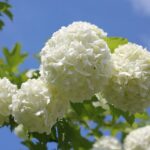Immune System Boosters: A Holistic Approach to Fitness and Nutrition
As we navigate the complexities of modern life, it’s becoming increasingly important to prioritize our overall health and well-being. One crucial aspect of this is maintaining a strong immune system, which serves as our body’s defense mechanism against disease-causing pathogens and foreign substances. In this blog post, we’ll delve into the world of immune system boosters and explore the intricate relationship between fitness, nutrition, and immune function.
Understanding the Immune System
The immune system is a complex network of cells, tissues, and organs that work together to protect our body against infections and diseases. It consists of two main branches: the innate immune system, which provides immediate defense against pathogens, and the adaptive immune system, which develops a targeted response to specific infections over time.
Exercise and Immune Function
Regular exercise has been consistently shown to have a positive impact on immune function. Physical activity stimulates the circulation of white blood cells, which are vital for fighting off infections. Additionally, exercise has anti-inflammatory effects, which can help mitigate the negative impacts of chronic stress on the immune system.
Some of the best exercises for immune system support include:
- Yoga and Pilates: low-impact exercises that promote flexibility and reduce stress
- High-intensity interval training (HIIT): promotes cardiovascular health and boosts immune function
- Walking and jogging: low-impact cardio exercises that stimulate the circulation of white blood cells
Nutrition and Immune Function
A well-balanced diet is essential for maintaining a healthy immune system. Certain nutrients and foods have immune-boosting properties, while others may suppress immune function. Here are some of the top foods for immune system support:
- Citrus fruits: rich in vitamin C, which has been shown to have immune-boosting effects (https://ods.od.nih.gov/factsheets/VitaminC-HealthProfessional/)
- Leafy greens: spinach and kale are rich in antioxidants, which help protect against oxidative stress and inflammation
- Nuts and seeds: almonds, sunflower seeds, and pumpkin seeds are rich in vitamin E, which has been shown to have immune-protective effects (https://ods.od.nih.gov/factsheets/VitaminE-HealthProfessional/)
- Mushrooms: certain types, such as reishi and chaga, have been shown to have immune-boosting properties (https://www.ncbi.nlm.nih.gov/pmc/articles/PMC7120988/)
Herbal Remedies for Immune System Support
Certain herbs and supplements have been traditionally used to support immune function. Here are some of the top herbal remedies for immune system support:
- Echinacea: has been shown to have anti-inflammatory and immune-boosting effects (https://ods.od.nih.gov/factsheets/Echinacea-HealthProfessional/)
- Garlic: has been shown to have immune-protective effects and reduce the severity of colds and flu (https://www.ncbi.nlm.nih.gov/pmc/articles/PMC7168953/)
- Probiotics: beneficial bacteria that support gut health and immune function (https://ods.od.nih.gov/factsheets/Probiotics-HealthProfessional/)
Conclusion
A strong immune system is crucial for maintaining overall health and well-being. By incorporating exercise, nutrition, and herbal remedies into your daily routine, you can take a holistic approach to immune system support. Remember to always consult with a healthcare professional before making any significant changes to your diet or supplement routine.



